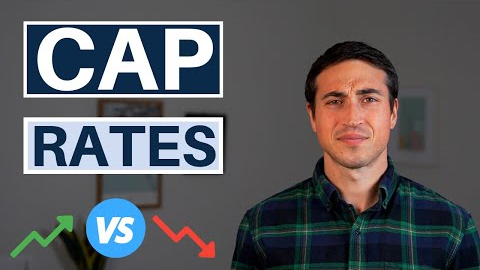Real Estate Cap Rates Explained
46,938 View
Share this Video
- Publish Date:
- February 16, 2023
- Category:
- Home Remodeling Trends
- Video License
- Standard License
- Imported From:
- Youtube
Tags

Real Estate Cap Rates Explained // The cap rate is one of the most widely referenced investment metrics in all of commercial real estate, but despite how popular the cap rate term is, this still tends to be one of the most misunderstood metrics in the entire real estate industry.
A quick Google search will tell you that the cap rate is just a property’s net operating income (NOI) divided by the property’s purchase price.
But even though this is an extremely basic calculation, there is so much more to this metric than just a simple division problem.
There are a ton of different factors that end up affecting cap rates in a market, and while a higher cap rate does mean a higher yield for investors going into a deal, that doesn't necessarily mean that a deal is more profitable than a lower cap rate transaction, or even profitable at all.
So to address some of the most commonly asked questions inside the Break Into CRE coursework and from Break Into CRE Academy members, in this video, let’s take a step back and talk through what cap rates actually are, what drives cap rates up or down on commercial real estate deals, and some rules of thumb that you can use to know where a property might fall on the cap rate spectrum.
Enroll in the free Break Into CRE Real Estate Financial Modeling Crash Course here: https://www.breakintocre.com/free-crash-course
Check out all Break Into CRE courses here: https://breakintocre.com/courses/
Want instant access to all Break Into CRE courses, models, and additional one-on-one support? Check out Break Into CRE Academy here: https://breakintocre.com/the-academy
**Looking for direct commercial real estate investment opportunities with top sponsors in the industry? Check out my favorite real estate crowdfunding platform, CrowdStreet: https://crowdstreet.4cl7.net/c/2975738/592761/9753
🕒Timestamps🕒:
0:00 Introduction
1:18 What Is a Cap Rate?
2:32 Driver #1 - Income Upside
5:12 Driver #2 - The Risk-Free Rate
7:22 Driver #3 - Risk of Capital Loss
9:55 How To Level Up Your Real Estate Investment Analysis Skills
*Nothing in this video should be construed as tax, legal, accounting, valuation, or financial advice or recommendation. All information in this video is intended solely for educational purposes, and you are advised to consult with your own personal professional advisors regarding your personal investment decisions.
**AFFILIATE DISCLOSURE: Some of the links in this description are affiliate links, meaning, at no additional cost to you, we may earn a commission if you click through and make a purchase and/or create an account.














